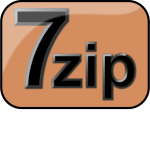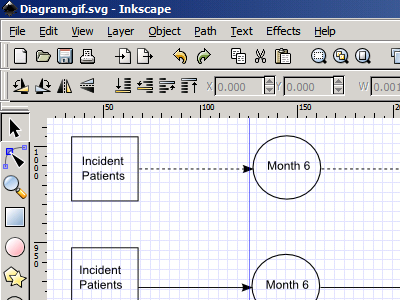
Major changes are made to the python codes and functions if you compare 2.7 with 3+ versions. It is therefore necessary to download this version of python for running WA+ tools. The WA+ python codes are made for python version 2.7 for Windows operating systems. However, be sure that your computer/laptop is a **64 bits computer/laptop. It is recommended to download the 64 bits version, because this will increase the calculation capacity enormously. The Anaconda executable can be downloaded from.
#INKSCAPE 7ZIP DOWNLOAD INSTALL#
Method 1: Install Anaconda from Continuum On our FTP server the Anaconda python module library that the WA+ team is using is also stored on the FTP server. The Advantage of method 2 is that you don't need to install all the specific modules that are needed for running the WA+ toolbox manually one by one.
#INKSCAPE 7ZIP DOWNLOAD MANUAL#
This manual will describe two different method to install Anaconda: Alternatively, these modules can be installed separately by the user if a different package than Anaconda is preferred. The great advantage of using the standard Anaconda package is that most of the commonly used modules are included in the package and also a IDE is included (Spyder). The WA+ team recommends to download the python package of Anaconda. There are several packages available, which include python. The steps mentioned above will be described one by one below. Step 3: Install Inkscape, 7zip, and GDAL.Step 1: Install Anaconda (64 bits and python 2.7 version).To install the water accounting toolbox the following steps are needed: Hereafter the functions to collect, process, and calculations of the water accounting plus sheets will be shown.
#INKSCAPE 7ZIP DOWNLOAD HOW TO#
This memo describes first how to install the water accounting toolbox. The water accounting toolbox is a set of open access functions that can be used to collect data, process data, and to create the water accounting plus maps, csv, and sheets.

Water Accounting Plus is the process of communicating water resources related information and the services generated from consumptive use in a geographical domain, such as a river basin, a country or a land use class to users such as policy makers, water authorities, managers, etc.



 0 kommentar(er)
0 kommentar(er)
